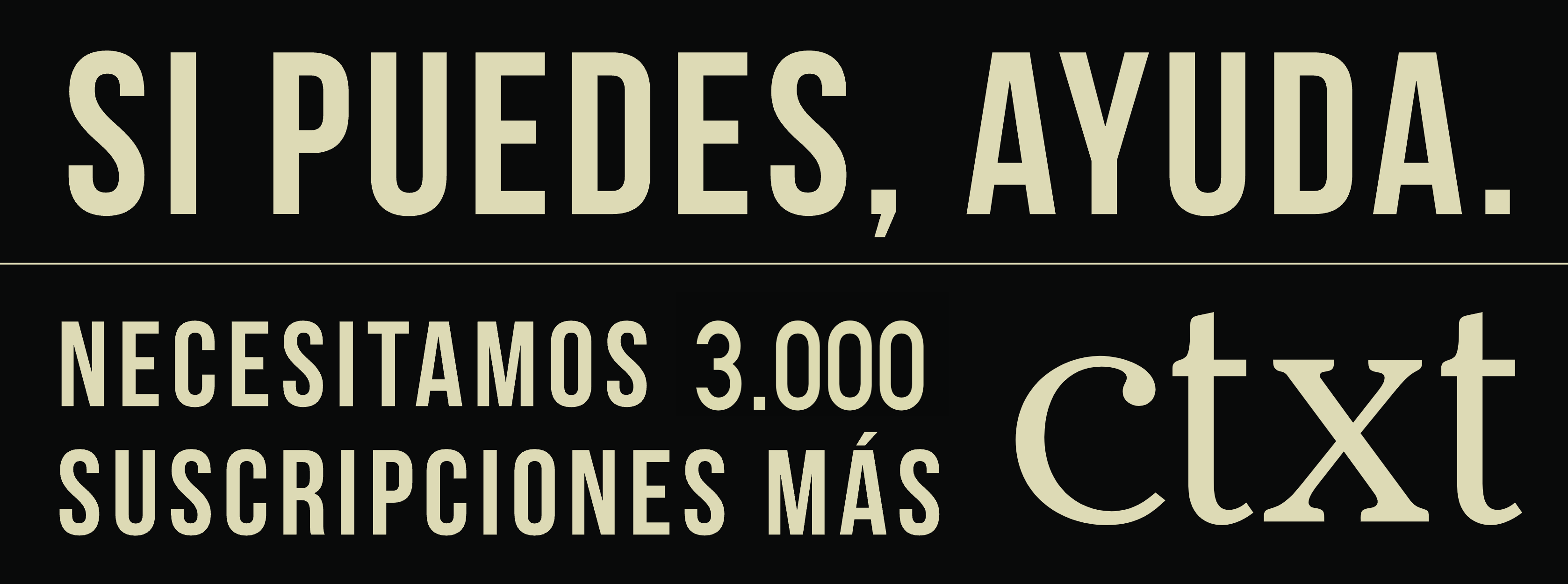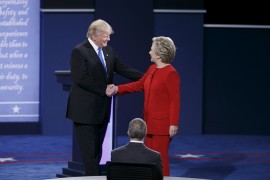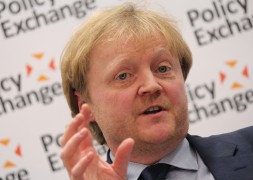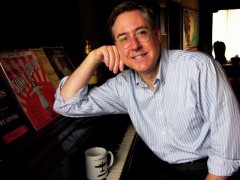
Sophomore student, Fatimah Mozawalla during a talk on islamophobia.
Jonathan Heisler - Hofstra UniveEn CTXT podemos mantener nuestra radical independencia gracias a que las suscripciones suponen el 70% de los ingresos. No aceptamos “noticias” patrocinadas y apenas tenemos publicidad. Si puedes apoyarnos desde 3 euros mensuales, suscribete aquí
As Karl Marx might have said, a specter is haunting US politics: the specter of Islam. At the presidential debate at Hofstra University this Monday, Donald Trump may return to his infamous attempt to exorcise this specter by imposing a ban on Muslims wishing to enter the country “until we know what the hell is going on”. Hillary Clinton may take him to task for this policy, projecting a more positive vision of the role of Muslim—and Mexican—immigrants. But she herself will want to banish the memory of her support for the invasion of Iraq in 2003, and to dodge awkward questions about her proactive, counterproductive policy of regime change in Libya. Instead, she will weave a narrative that buries uncomfortable facts about the long history of aggressive US involvement in the Middle East. Both candidates thrive on the suppression of knowledge and memory.
Mainstream media in the US have in fact generated a culture of amnesia concerning the Islamic world, argues Ala Alryyes, professor of English at Queens College (New York). The events that seize the nation’s attention—the war in Iraq, the rise of Islamic State, or the recent bombings in New York and New Jersey—are routinely decontextualized. History is eclipsed by sensationalism, erased by the immediate news story. Few Americans, he suggests, have any real grasp of the series of wars that racked Afghanistan, or the oil interests that bind the United States to Saudi Arabia. Islamophobia—irrational, fearful, and aggressive, he argues—feeds on an even more fundamental problem: “Islamo-Ignorance”.
In contrast with Spain, where the history of al-Andalus is by now an integral part of national memory, Alryyes argues, there is no national narrative in the US that includes Muslims. While most Americans are not Islamophobic, Islam is an unknown,. Right-wing politicians, and television channels such as Fox News, Alryyes adds, feed on this vacuum of knowledge. “Approximately 70% of people in the United States do not know a Muslim person,” explains Hussein Rashid, founder of a consulting company focusing on religious literacy and cultural competency. The Middle East also remains an unknown. Despite the prominence of Syria in the news, few people know where the country is located, one Syrian-American student at Hofstra University laments. The fact that her family is Christian elicits even more surprise; people assume that all Syrians (wherever that is) are Muslims (whatever that means).
Under the controversial rules of the Commission on Presidential Debates, the third presidential candidate, Gary Johnson—whose question “What is Aleppo?” provoked international shock and awe—will not be participating in the Hofstra debate. For many faculty members and students at Hofstra, the prospect of hosting an internationally-televised debate that may nevertheless provide a showcase for ignorance is an alarming one, jarring with the essential function of a university. A large banner with hundreds of signatures, endorsed by the Hofstra chapter of the NAACP (National Association for the Advancement of Colored People) and the Hofstra Campus Feminist Collective, will be prominently displayed in a variety of locations across the campus. It will bear the words: “We value learning, not ignorance. We value communicating, not silencing”.
Some students remain optimistic about the role of the university in undermining the conflation of Islam with terrorism. At a well-attended session on Islamophobia, on the tenth floor of the Hofstra library, Fatimah Mozawalla, a second-year student, wears the hijab proudly. “It is my microphone,” she claims. Insistent that the so-called Islamic State is not, in fact, a religious organization—but a political movement that has hijacked religion—she cites a Qu’ranic principle: whoever kills a man unjustly, it is as if he has killed all mankind. “Although there is still a lot of work to be done,” she states, “I believe that change is possible”. The Syrian-American Christian student, shares her faith in education, seeing it as a counterbalance to the power of the media in shaping public perceptions of the Middle East. “What about the stories that aren't told?” she asks; “Who speaks for them?”. The classroom provides an antidote.
Yet the depth of hostility towards Muslims has left some educators in despair. For Hussein Rashid, Trump’s rhetoric is profoundly disturbing: “His desire to ban immigrants from a country of immigrants; his comparison of dying children to poison; and his use of anti-Semitic imagery should all be called out during the debates. It is not just Islamophobia, but racism writ large”. He admits that he is losing hope. “What we’ve seen in New York this year is men being shot, women being stabbed, and women being lit on fire. I am not sure that if someone has it in their heart to try to burn another human being alive, that education will help”.
Others agree that the solution must be as deep, and as widespread, as the social problem, stretching far beyond the classroom. I recently spoke to Isma Chaudhry, the female president of the Islamic Center of Long Island, in Westbury (New York), and a part-time Hofstra professor. Chaudhry’s community is diverse, including male and female worshippers whose families come from South Asia and many parts of the Middle East (Syria, Egypt, Iraq, and Saudi Arabia), as from the United Kingdom. A well-traveled professional physician, hailing from Pakistan, Chaudhry takes inspiration from what she sees as the cultural openness, integration, and exchange that occurred in al-Andalus. But her mosque has been repeatedly attacked: windows have been broken, and trucks driven across the front lawn, while even children on their way to the mosque have been subject to hate speech.
For Chaudhry, the solution lies in a process of soul-searching, and an exercise in humane commitment, encompassing the entire country. The US, she suggests, must find a way to allow a space for moderate Islam, in which young Muslims can openly embrace their identity and non-Muslims can welcome the presence of Muslim culture, food, and religion in their midst. She takes heart from the recent decision of the mayor of New York City, Bill de Blasio, that public schools should recognize the Muslim holidays of Eid al-Adha and Eid al-Fitr.
Chaudhry will be watching the presidential debate with interest. Both candidates know it will be dangerous to address the question of Islam, she says, and both know it can drag them down. Yet they will have no alternative: immigration, terrorism, and US policy in the Middle East will surely be prominent themes.
As Karl Marx might have said, a specter is haunting US politics: the specter of Islam. At the presidential debate at Hofstra University this Monday, Donald Trump may return to his infamous attempt to exorcise this specter by imposing a ban on Muslims wishing to enter the country...
Autor >
Simon R. Doubleday
Suscríbete a CTXT
Orgullosas
de llegar tarde
a las últimas noticias
Gracias a tu suscripción podemos ejercer un periodismo público y en libertad.
¿Quieres suscribirte a CTXT por solo 6 euros al mes? Pulsa aquí






